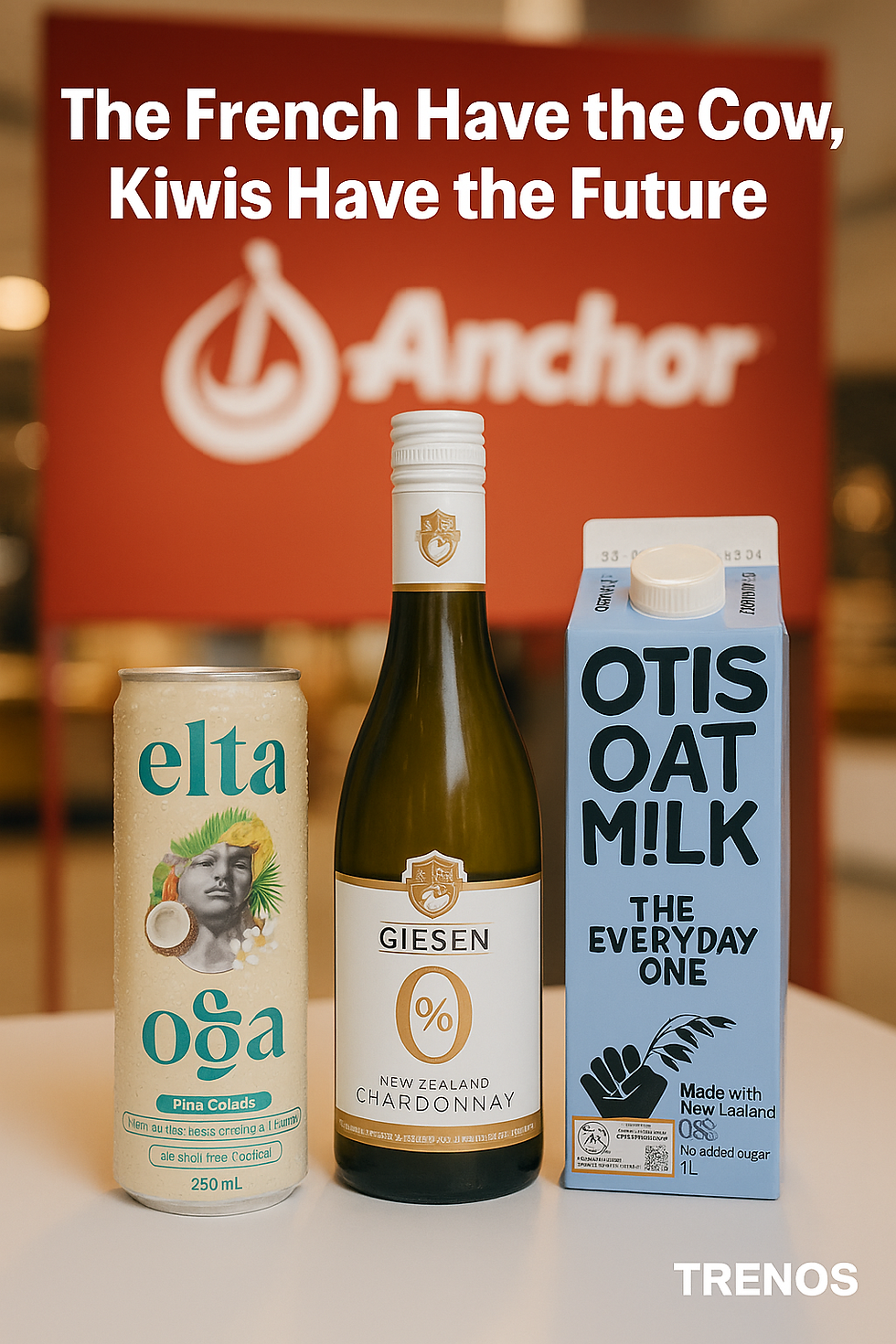TRENOS SiGINT: Brazil Code-Cracking Fish
- JC - Analyst
- Oct 20, 2025
- 2 min read
JC Analyst: October 2025

Signal:
Brazilian scientists are code-cracking fish by establishing a volatile-compound map for plant-based fish analogues, showing which aromas drive acceptance and which repel consumers. The study bridges the taste-experience gap that’s kept seafood analogues niche.
Human Factor:
People aren't buying “sustainability”, they buying taste memories. When a plant-based fillet smells like the sea and fries like the real thing, flexitarians stop feeling virtuous and start feeling satisfied.
TRENOS Metrics Snapshot
Field | Detail |
Signal | Flavour/aroma mapping for plant-based fish |
Data Point | GC-MS analysis of mushroom + soy/oat fillets; “T17” variant rated highest in sensory tests |
TikTok Views | #plantbasedseafood ≈ 42 M views (2025) |
Retail Footprint | Early prototypes in LATAM food-tech labs; no mass retail yet |
Ingredient Format | Mushrooms (Pleurotus ostreatus) + enzymatic crosslinking |
Product Range | Fish fillets, breaded portions, tuna-style analogues |
Consumer Segment | Flexitarians, seafood-reducers, sustainability-minded shoppers |
Brand Origin | Brazil (Federal University of Lavras R&D) |
Export Status | R&D-stage; potential for licensing to global flavour houses |
Trend Classification | Next-Gen Flavour Science / Seafood Analogues |
System Pressure Point | Overfishing, taste-gap, and consumer sensory rejection |
Long Play -Brazil Code-Cracking Fish
Flavour has always been the make-or-break moment for plant-based seafood. Texture is easy—flavour is the art. This Brazilian blueprint could let manufacturers design analogues backwards, from aroma first, protein later. Whoever owns that library of “sea volatiles” owns the gateway to mainstream adoption.
Expect partnerships between biotech flavour labs, mushroom producers, and global seafood brands hungry for sustainable SKUs. Once aroma fidelity hits parity with real fish, supermarket shoppers won’t be buying “plant-based”—they’ll just be buying dinner.
Consumer takeaway: when your next “fish” taco actually smells like it came off a pier, not out of a pulse mill, you’ll know the future of seafood has landed.
ENDS:




Comments